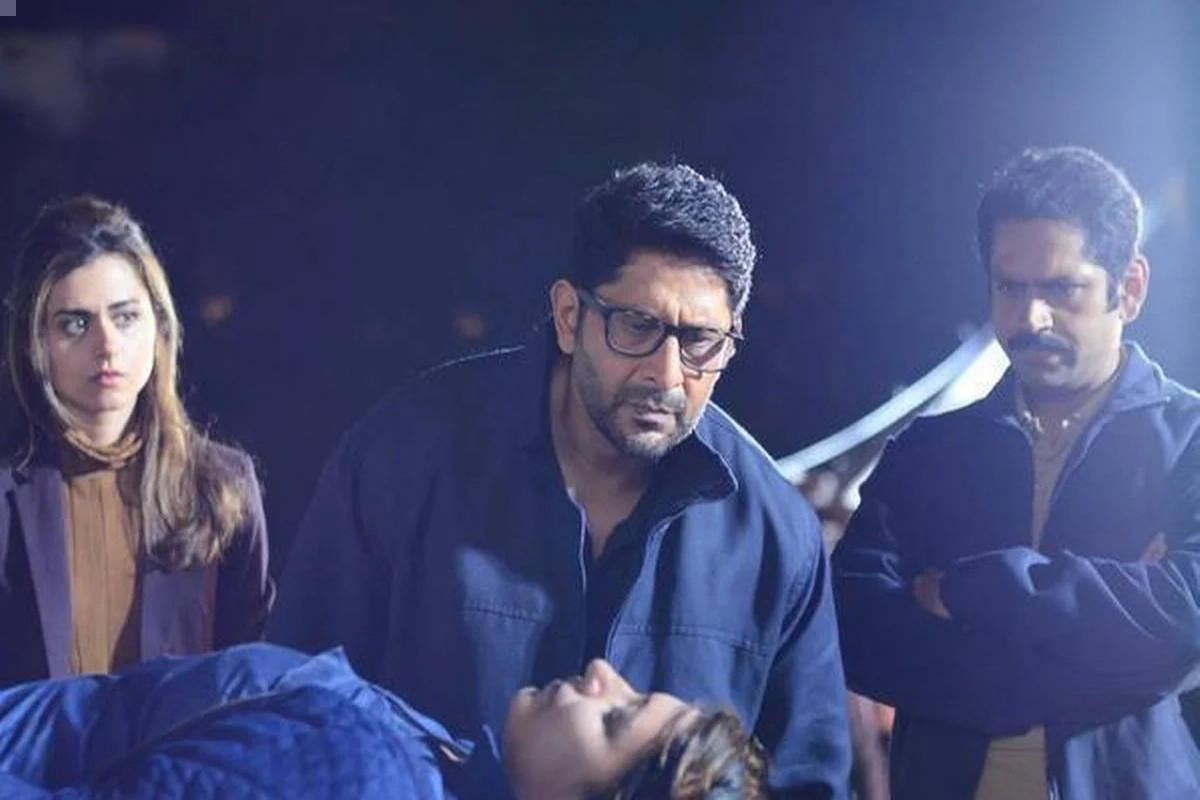
Asur Season 2 review: Mythology meets technology in a thrilling, but unfulfilling fare

Picture this: A Dalit leader, a Muslim cleric and an anti-establishment journalist are trapped in a chamber which is running out of oxygen. A serial killer, with misguided notions of Hinduism (who is also their kidnapper), is watching them via CCTV. He then urges them to murder each other so they can consume more oxygen and live longer, lest someone is coming to save them.
The dramatic, social and religious irony here is palpable. It was perhaps this nuanced commentary on religion and its corrosive power that made Asur a cult hit when it was released on Voot Select during the pandemic in 2020. The second season, though just as effective in carrying forward the legacy of its predecessor, falls short of taking as provocative a political stance as it did back then.
Off to a shaky start
Asur Season 2 opens with Nikhil (Barun Sobti) and Naina (Anupriya Goenka) finalizing their divorce, as Dhananjay (Arshad Warsi) shifts base to a monastery to find peace after the traumatic events of last year. This time, Asur makes a comeback on giant LED screens and directly addresses the common folk, showing them just how powerless their God is as he brazenly murders three people in full public view. The investigation continues and therapists are assigned to monitor Nikhil and his mental well-being.
Also read: White House Plumbers review: A goofy, sharply satirical ride through Watergate scandal
Soon, Dhananjay goes to Banaras to uncover the truth about Shubh’s past. He hops in and out of ongoing investigation as he tries to connect the threads and kill the monster he created. Meanwhile, the CBI office gets a makeover and two new members — Ishani (Aditi Kalkunte Shyamprasad) and Paul (Meiyang Chang). The new characters, while promising, don’t really get a chance to breathe and thrive amid the ongoing action.
After a while, it becomes difficult to figure out their ambitions and motivations. Paul, despite heading the case, doesn’t make a significant contribution in the entire course of investigation. One can’t help but wonder if this character was necessary at all. While the writers do make a pertinent point on women’s intuitive abilities (especially when it comes to solving murders) via Ishani, the effect is short-lived, much like the character herself.
Less mythology, more artificial intelligence
The biggest shortcoming of the season is that the references to Hindu mythology, barring the Kali-Kalki and Kalyug-Satyug analogies, are bare minimum. Think Kesar Bhardwaj citing the Ashtha Tithi from Bhagwad Gita to explain how Asur chooses his targets in the previous season — or Asur selectively killing those born in Dhanishta nakshatra, which made Dhananjay analyse the horoscopes of everyone in the SIC database. The investigators combined the knowledge of mythology with modern technology to hunt down Asur in the first season, which made the show modern, yet rooted — a ‘mytho’-thriller in the true sense of the word.

In the second season, however, it is only the technology that remains as mythology takes a backseat. We discover that Shubh, with the help of a Professor, has built an AI neural network which can predict future events. It is revealed that this network helped him successfully execute his plan and past murders, as the AI model helped him stay one step ahead of the CBI. Given the rise of ChatGPT in the real world and ethical concerns around artificial intelligence, the premise seems not only reasonable but also relevant to the present day.
Also read: Kathal review: A satirical commentary on India’s politics, police and the press
However, we don’t see a mythological explanation being provided for the AI network, which is apparently going to cause a yuga parivartan (change of era). How did Shubh, who has a Sanskrit shloka or Mahabharata reference for literally everything, reach the conclusion that AI will end Kali Yuga? Of course, there’s commentary here on social media apps misusing our private data and selling it to advertisers to make money—which is socially relevant but again, the mythological significance of this is missing.
Yatra, tatra, sarvatra — via Zoom call
Another notable shift in the second season is that much of the action happens digitally, on the computer screens. We mostly see Naina trying to break into the firewall or Rasool hacking servers. Compare this to the first season where Nikhil used the atomic numbers of Nickel and Iridium to share his coordinates with Dhananjay, or a scientist dying because her iron capped tooth blew her brains out. The murder techniques are not half as innovative or shocking as the first season. The clues and evidence gathering are all digital — which is probably why Nikhil and Dhananjay, who seemed overpowering in the first season as they deciphered clues from autopsies and crime scenes, seem rather mellow.
In fact, the Asur himself isn’t as menacing this time as we mostly see him hop into Zoom video calls and live streams as opposed to the first season where he was yatra tatra sarvatra (here, there, everywhere). The paranoia of the previous season where Asur (or his accomplice) would suddenly pop out from the shadows with a knife is missing this time.
Also read: Killers of the Flower Moon: Martin Scorsese’s intimate tale of racial reckoning in America
The fact that the equations of the characters remain unchanged throughout the season is another bummer — we see little-to-no character development with the exception of Dhananjay who has clearly become more ruthless and unforgiving. The Nusrat-Nikhil-Naina equation is the same at the end of the 10th episode as it was in the beginning, so the show does leave much to be desired in this department.
A fitting, but underwhelming conclusion
The track of the ‘Miracle Child’ Anant, who Dhananjay positions as Kalki, the destroyer of Kali, gets stale pretty quick. We find the answers to many questions that we had in the first season, but after a while, the plot becomes predictable as Shubh, for possibly the hundredth time, holds a family member of the ATF team hostage (this time, it is Nusrat), making one wonder why the CBI chief hasn’t already given Z+ security to the kin of the investigators. Towards the end, seeing Dhananjay come face-to-face with Shubh one final time on the ghats of Varanasi makes things come full circle but doesn’t evoke the pathos one would expect after two seasons of maddening action.
The second season of Asur, however, does offer much-needed closure and a fitting conclusion to the Shubh saga. In the final scene, we see Nikhil kill Shubh to avenge Rhea’s death and the makers allude to Kali’s immortality and that it will likely take another form. While Asur 2 does tie up loose ends and offers nuanced commentary on the evils of technology, it leaves much to be desired.
The first two episodes of Asur season 2 are streaming now on Jio Cinema


